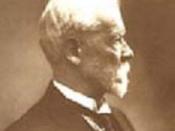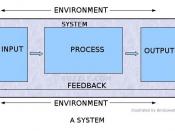Running head: MANAGEMENT THEORIES MANAGEMENT THEORIES
Management Theories
Name: FELISTA MUTHOKI MUTINDA
Course Title: CHRISTIAN BELIEFS
Course Code: Buss100 Term Paper
Instructor's Name: GEORGE ANTHONY
College: JKUAT KAREN CAMPUS
Date: TRIMESTER JAN- APRIL
Management Theories
Introduction
Management can be defined as organization and coordination of programs and activities within a business to achieve pre-defined goals and objectives. However, management being a factor of production has to be developed with consideration of available machines, money and materials. According to Sir Thomas More, the modern management practice originates from failure and low- efficiency of enterprises in the 16th century, a fact that necessitated studies on interlocking functionalities in organizing, planning, directing and control of resources within an organization to achieve objectives of the created management and corporate policy. The paper will deliberate on management theories and the corresponding functions within modern organizations.
CLASSICAL MANAGEMENT THEORY
This kind of theory emphasizes on organization structure with prescription of what healthy for an organization and practical management (with exception of Weber, a sociologist).
HENRI FAYOL (1841 - 1925), FRANCE
Administrative Theory was a brain child of Henri Fayol, a junior engineer who worked in a French Mining industry; he studied the management structure in place noting down the aspects of management that would enhance high productivity. In a quest for positive impact on management, Fayol derived and considered his 14 important "principles of management". However, he considered the principles as essential in explaining how management teams should interact with staff to effectively and efficiently achieve prep-defined organizational goals and objectives (http;//www.mindtools.com).
HENRI FAYOL'S "14 PRINCIPLES"
DIVISION OF WORK/ LABOR
Fayol argued that division of labor reduces the extent of effort or attention either for a group or person leading to familiarity or specialization. When work is divided within an organization, attention and...


